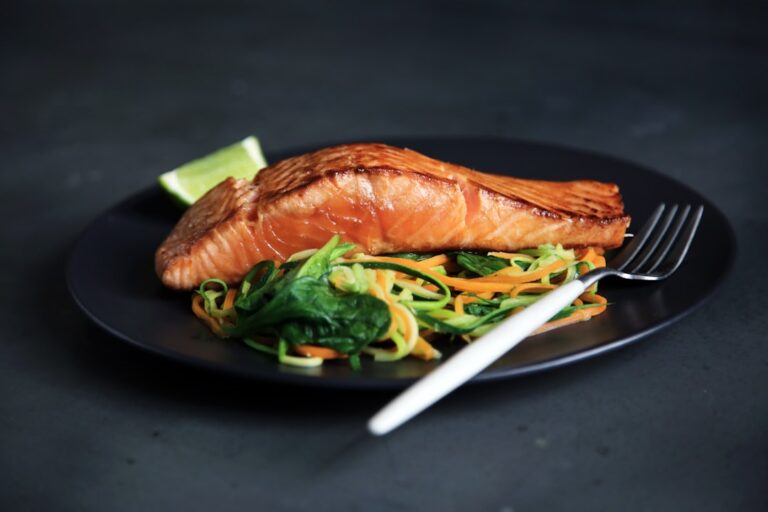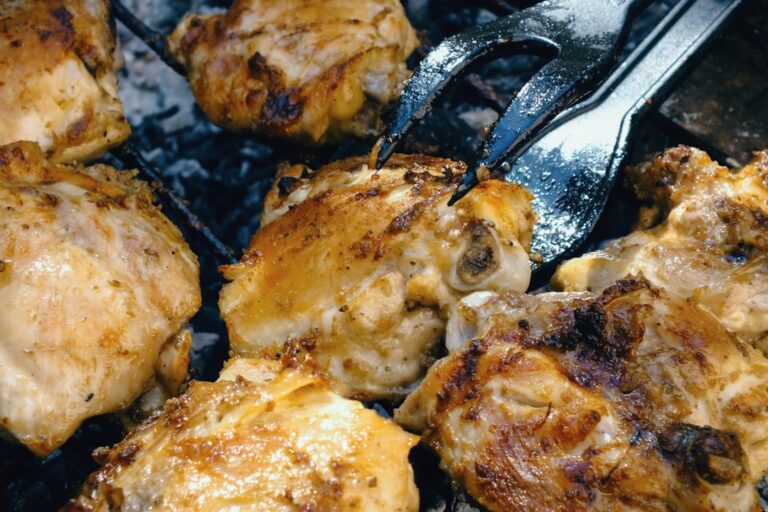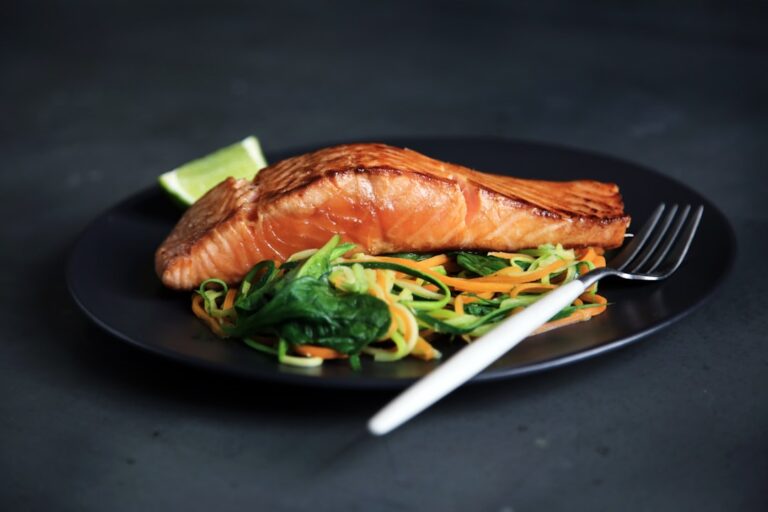25 Fat Burning Foods That Will Help You Shed Pounds

When it comes to weight loss, many people focus solely on exercise and calorie restriction, but the types of foods you eat can also play a significant role in helping you shed those extra pounds. Fat burning foods are those that have been shown to increase metabolism, promote satiety, and aid in the body’s ability to burn fat. These foods are often nutrient-dense, low in calories, and packed with essential vitamins and minerals. By incorporating fat burning foods into your diet, you can not only support your weight loss goals but also improve your overall health and well-being.
Key Takeaways
- Introduction to Fat Burning Foods:
- Fat burning foods are natural ingredients that can help boost metabolism and aid in weight loss.
- Including these foods in your diet can help you achieve your weight loss goals and improve overall health.
- Lean Proteins and their Fat Burning Benefits:
- Lean proteins such as chicken, turkey, and fish can help increase metabolism and promote fat burning.
- These proteins also help in building and repairing muscles, which can further aid in weight loss.
- Fiber-Rich Foods for Weight Loss:
- Fiber-rich foods like fruits, vegetables, and whole grains can help you feel full and satisfied, leading to reduced calorie intake.
- They also aid in digestion and help regulate blood sugar levels, contributing to weight loss.
- Spices and Herbs that Aid in Fat Burning:
- Certain spices and herbs like cayenne pepper, ginger, and cinnamon can help boost metabolism and promote fat burning.
- Adding these flavorful ingredients to your meals can enhance the fat burning potential of your diet.
- Fruits and Vegetables that Boost Metabolism:
- Fruits and vegetables like berries, apples, spinach, and kale are rich in antioxidants and nutrients that can help boost metabolism.
- Including a variety of these colorful foods in your diet can support weight loss and overall health.
- Healthy Fats for Weight Loss:
- Healthy fats from sources like avocados, nuts, and olive oil can help keep you feeling full and satisfied, reducing the risk of overeating.
- These fats also support heart health and can aid in weight loss when consumed in moderation.
- Conclusion and Tips for Incorporating Fat Burning Foods into Your Diet:
- Incorporating a variety of fat burning foods into your meals can help support your weight loss efforts and improve overall health.
- Be mindful of portion sizes and overall calorie intake, and combine fat burning foods with regular exercise for best results.
Lean Proteins and their Fat Burning Benefits
Lean proteins are an essential component of any fat burning diet. Foods such as chicken breast, turkey, fish, and tofu are not only low in calories but also high in protein, which can help promote feelings of fullness and reduce overall calorie intake. Additionally, protein requires more energy to digest compared to fats and carbohydrates, which means that your body burns more calories during the digestion process. This is known as the thermic effect of food, and it can contribute to increased metabolism and fat burning. Including lean proteins in your meals can also help preserve muscle mass during weight loss, which is important for maintaining a healthy metabolism.
In addition to their thermic effect, lean proteins also provide essential amino acids that are necessary for muscle repair and growth. By building and maintaining lean muscle mass, you can further support your body’s ability to burn fat. Including a serving of lean protein with each meal can help stabilize blood sugar levels, reduce cravings, and support overall weight loss efforts.
Fiber-Rich Foods for Weight Loss
Fiber is another important component of a fat burning diet. Foods such as fruits, vegetables, whole grains, and legumes are rich in dietary fiber, which can help promote feelings of fullness and reduce overall calorie intake. Additionally, fiber helps regulate digestion and can contribute to a healthy gut microbiome, which has been linked to weight management and overall health.
When you consume fiber-rich foods, they take longer to chew and digest, which can help prevent overeating and promote satiety. Furthermore, fiber can help regulate blood sugar levels and prevent spikes in insulin, which can contribute to fat storage. By including a variety of fiber-rich foods in your diet, you can support your weight loss goals while also reaping the many other health benefits associated with a high-fiber diet.
Spices and Herbs that Aid in Fat Burning
In addition to the macronutrients and micronutrients found in food, certain spices and herbs have been shown to aid in fat burning and weight loss. For example, capsaicin, the compound that gives chili peppers their heat, has been shown to increase metabolism and promote fat oxidation. Including spicy foods in your diet can help boost calorie burning and support weight loss efforts.
Other herbs and spices such as cinnamon, ginger, turmeric, and cayenne pepper have also been shown to have thermogenic properties, meaning they can increase the body’s temperature and promote calorie burning. These spices can be easily incorporated into meals and beverages to add flavor while also supporting fat burning.
In addition to their thermogenic properties, many herbs and spices also have anti-inflammatory and antioxidant effects, which can contribute to overall health and well-being. By incorporating a variety of herbs and spices into your cooking, you can not only enhance the flavor of your meals but also support your body’s ability to burn fat.
Fruits and Vegetables that Boost Metabolism
Fruits and vegetables are essential components of a fat burning diet. Not only are they low in calories and high in essential vitamins and minerals, but many fruits and vegetables also contain compounds that can help boost metabolism and support weight loss efforts.
For example, fruits such as berries, apples, and grapefruits are rich in antioxidants and fiber, which can help regulate blood sugar levels and promote feelings of fullness. Additionally, certain fruits such as green tea extract have been shown to increase metabolism and promote fat oxidation.
Similarly, vegetables such as spinach, kale, and broccoli are packed with nutrients and compounds that can support fat burning. These vegetables are low in calories but high in fiber, which can help promote satiety and reduce overall calorie intake. Additionally, they contain compounds such as sulforaphane and indole-3-carbinol, which have been shown to support the body’s ability to burn fat.
By including a variety of fruits and vegetables in your diet, you can not only support your weight loss goals but also improve your overall health and well-being.
Healthy Fats for Weight Loss

While it may seem counterintuitive, including healthy fats in your diet can actually support weight loss efforts. Foods such as avocados, nuts, seeds, and olive oil are rich in monounsaturated and polyunsaturated fats, which have been shown to support heart health and promote satiety.
Healthy fats can help regulate appetite and prevent overeating by promoting feelings of fullness. Additionally, they can help regulate blood sugar levels and prevent spikes in insulin, which can contribute to fat storage. By including a serving of healthy fats with each meal, you can support your weight loss goals while also reaping the many other health benefits associated with these nutrient-dense foods.
In addition to their satiating effects, healthy fats also play a crucial role in nutrient absorption. Many essential vitamins and minerals are fat-soluble, meaning they need to be consumed with fat in order to be properly absorbed by the body. By including healthy fats in your meals, you can ensure that you are getting the most nutritional value out of the foods you eat.
Conclusion and Tips for Incorporating Fat Burning Foods into Your Diet
In conclusion, fat burning foods are those that have been shown to increase metabolism, promote satiety, and aid in the body’s ability to burn fat. By incorporating lean proteins, fiber-rich foods, spices and herbs, fruits and vegetables, and healthy fats into your diet, you can support your weight loss goals while also improving your overall health and well-being.
When incorporating fat burning foods into your diet, it’s important to focus on variety and balance. Including a wide range of nutrient-dense foods can help ensure that you are getting all the essential vitamins and minerals your body needs while also supporting your weight loss efforts. Additionally, it’s important to pay attention to portion sizes and overall calorie intake. While fat burning foods can support weight loss, it’s still important to maintain a calorie deficit in order to see results.
Incorporating fat burning foods into your diet doesn’t have to be complicated or restrictive. By focusing on whole, unprocessed foods and experimenting with different flavors and cooking techniques, you can create delicious meals that support your weight loss goals. Additionally, staying hydrated and being mindful of your eating habits can further support your efforts to incorporate fat burning foods into your diet.
Overall, by making small but consistent changes to your eating habits and focusing on nutrient-dense foods that support fat burning, you can achieve your weight loss goals while also improving your overall health and well-being.
Looking to shed some pounds and boost your metabolism? Check out our article on 25 Fat Burning Foods That Will Help You Shed Pounds. And if you’re interested in more health and wellness tips, be sure to read Angel Strawbridge’s inspiring weight loss journey on Life Hacks For. Additionally, if you want to optimize your productivity at work, don’t miss our article on the best life hacks for work. And for all the travel enthusiasts out there, learn how to be the world’s smartest traveler with our comprehensive guide on Life Hacks For.
FAQs
What are fat burning foods?
Fat burning foods are foods that have been shown to help boost metabolism, increase satiety, and promote fat loss in the body. These foods are often low in calories and high in nutrients, making them a great addition to a weight loss diet.
How do fat burning foods help with weight loss?
Fat burning foods can help with weight loss by increasing the body’s metabolism, promoting feelings of fullness, and providing essential nutrients that support the body’s natural fat burning processes. These foods can also help to regulate blood sugar levels and reduce cravings for unhealthy, high-calorie foods.
What are some examples of fat burning foods?
Some examples of fat burning foods include lean proteins like chicken and turkey, high-fiber foods like fruits and vegetables, healthy fats like avocados and nuts, and metabolism-boosting spices like cayenne pepper and ginger.
How can I incorporate fat burning foods into my diet?
You can incorporate fat burning foods into your diet by including a variety of fruits, vegetables, lean proteins, and healthy fats in your meals and snacks. Try adding a handful of berries to your morning oatmeal, including a serving of lean protein with each meal, and snacking on nuts or seeds for a healthy dose of fat and protein.
Are fat burning foods a magic solution for weight loss?
While fat burning foods can be a helpful addition to a weight loss diet, they are not a magic solution for shedding pounds. Weight loss ultimately comes down to creating a calorie deficit through a combination of diet and exercise. However, incorporating fat burning foods into your diet can support your weight loss efforts and help you reach your goals more effectively.





